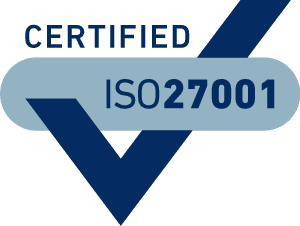Back to blog
Procurement Beyond the Status Quo 🚀
Jul 15, 2025
Edoardo Arbizzi
For decades, Procurement has been viewed as a support function, focused on cost control and daily operations. Often relegated to mere "Logistics 2.0" that ensures, especially in industrial contexts, that goods arrive on time and as agreed according to production schedules. This "downgrading" has always been typical of SMEs, which have never experienced urgency and complexity issues significant enough to revise their operational approach.
Today, however, the context has changed dramatically. Between price volatility, geopolitical tensions, and supply chain pressures, Procurement finds itself at the center of business complexity even in companies smaller than enterprise-level organizations. In this scenario, purchasing departments can no longer afford a passive role: they must become a strategic lever for protection and value creation, driving innovation and enterprise resilience.
But how can this leap forward be accomplished without forcing a massive cultural and educational shift across the entire workforce? Vertically-focused agentic AI in procurement can be the concrete (and now mandatory) answer that allows all organizations, including SMEs, to make a quantum leap. 📈
What is Agentic AI and Why is it Different 🤖
Agentic AI refers to digital systems based on generative artificial intelligence capable of autonomously interacting with tools and technologies made available to them. In practice, an AI agent is like a BOT powered by LLM (large language model) that, having access to specific information and tools (web search, access to business software), can make decisions and execute complex tasks with minimal human intervention.
McKinsey defines these agents as true "virtual colleagues" capable of completing multi-step workflows. The fundamental difference? Instead of limiting themselves to providing answers (like a classic chatbot), agentic AI can plan activities, use online tools, collaborate with people or other agents, and complete entire processes autonomously.
This evolution, made possible by recent advances in generative AI, opens previously unthinkable opportunities, digitally and economically transforming highly operational departments into strategic high-value-added centers. ⚡
From Passive Function to Strategic "Nerve Center" 💡
Implementing AI agents in Procurement means rethinking the very role this function plays. No longer a department constrained by static procedures and slow approvals, but a strategic nerve center of the company, with real-time decisions supported by data.
According to a McKinsey survey cited by EdgeVerve, 90% of business leaders are already using or planning to adopt agentic AI solutions to optimize procurement – a clear signal that transformation is underway. Pioneer organizations are converting purchasing from a cost center to a value center, thanks to networks of intelligent agents that orchestrate decisions and operations at previously unthinkable speeds.
The result? AI is doubling return on investment. A survey by the same strategic consulting firm indicates that 50% of companies that have employed AI in procurement have seen their ROI double. This happens because AI agents free human teams from repetitive and fragmented activities, allowing buyers to focus on sourcing strategies, supplier innovation, and risk management.
As a provocative McKinsey report from 2025 notes: at this point, the question is no longer whether organizations will adopt AI agents, but how quickly they will do so. Those who embrace this change first will have a clear competitive advantage. 🏆
Concrete Use Cases of AI in Purchasing Processes 🛠️
Advanced Spend Analysis and Category Management 📊
AI agents sift through spending data, contracts, product specifications, and market information, offering immediate insights to purchasing managers. Category agents can provide a morning briefing on commodity price trends, supplier news, and savings opportunities, saving category managers hours of analytical work.
McKinsey observes that these agents are already increasing the value generated by procurement by an additional 5-20%, with efficiency improvements between 15 and 30%. A metalworking manufacturing company implemented automatic category management agents, achieving 4-6% cost savings, in addition to significant efficiency gains in the process.
Autonomous Sourcing and AI-Driven Negotiations 🤝
One of the most revolutionary applications (and less dystopian than one might think) is the use of AI agents to conduct negotiations with suppliers. Retail giant Walmart is experimenting with a negotiating agent to automatically negotiate with some vendors on terms and prices.
The surprising finding? 3 out of 4 suppliers prefer negotiating with AI instead of a human buyer. This is because the agent is impartial, fast, and data-driven – it eliminates the emotional element and gets straight to the point, finding the optimal agreement.
Daily Operational Automation ⚙️
Many administrative and repetitive activities in the source-to-pay cycle can be delegated to AI agents: sending RFPs to suppliers, collecting and comparing quotes, entering orders in the ERP system, checking inventory and consumption, requesting deliveries, and managing document exchanges without human intervention.
These are low-value-added tasks that currently occupy much of buyers' days in SMEs. A well-trained AI agent can perform them autonomously 24/7, with superior precision and speed. Italian startup Compri.ai has developed a suite of agents that automatically manage communications with suppliers, document exchanges, and ERP updates, eliminating repetitive work and leaving the purchasing team only high-impact decisions.
Real-Time Risk Management and Compliance 🔍
Agentic AI can act as a constant sentinel over the supply chain. By integrating external data sources (news, supplier financial risk scores, ESG indicators) with internal data, an agent can monitor potential risk signals in real-time: logistics delays, critical supplier crises, anomalous commodity price variations, new tariffs or regulations.
An AI agent can monitor news and social media and signal if a strategic partner is facing financial or reputational problems, so procurement can activate a Plan B. Similarly, it can scan documents and regulations to ensure purchasing compliance, avoiding dealing with sanctioned suppliers or those non-compliant with company policies.
Key principle: Agentic AI enhances purchasing department capabilities, rather than replacing them in a dystopian sci-fi manner. 🛡️
Tangible Benefits for Manufacturing SMEs 🏭
Large enterprises have been investing in digital procurement solutions for years, but often manufacturing SMEs have lagged behind, constrained by limited resources and legacy systems. Agentic AI represents a unique opportunity for SMEs to bridge this gap and make a competitive quality leap.
Operational Efficiency and Productivity ⚡
BCG estimates that procurement functions employing AI can eliminate up to 30% of operational activities for teams. AI agents work tirelessly, reducing errors and avoiding bottlenecks (no more blocked approvals because "John is on vacation").
Cost Reduction and Spend Optimization 💰
According to BCG, using AI in procurement allows for overall cost reduction from 15% up to 45% (variable depending on the commodity category). A well-configured agentic platform can signal price anomalies, consolidate fragmented orders, and avoid off-contract purchases, with immediate savings. Compri.ai, targeted at manufacturing SMEs, claims to generate annual savings of around 10% through optimized spend management.
Risk Reduction and Greater Resilience 🛡️
AI agents can constantly monitor supply risks, price fluctuations, and vendor performance indicators, providing a sort of early warning system. This allows SMEs to anticipate problems instead of suffering them, avoiding fines up to 5% of annual revenue for compliance failures (think of the risks from CBAM regulations).
Ultimately, agentic AI gives manufacturing SMEs the "eyes" and "arms" to manage complex purchasing with the same skill as much larger companies. It's an unprecedented leveling of the playing field: small and medium enterprises can equip themselves with procurement "superpowers" previously reserved for giants with million-dollar IT budgets. 🦾
Conclusions: A New Era for SME Purchasing 🌟
The application of agentic AI in procurement represents a historic opportunity for small and medium manufacturing enterprises to rethink their role and impact. From a reactive function, limited to "buying well" what others have decided, procurement can elevate itself to strategic director of business growth.
The transformation is already underway: those who embrace it first will have a decisive competitive advantage in tomorrow's market. 🚀
Sources: McKinsey & Company; Gartner; Boston Consulting Group; Deloitte; EdgeVerve; Bloomberg; TechFundingNews (Compri.ai).
Join compri,
10X your procurement team.
compri uses AI to make your procurement experience easier, faster and smarter. Get in touch to know more



